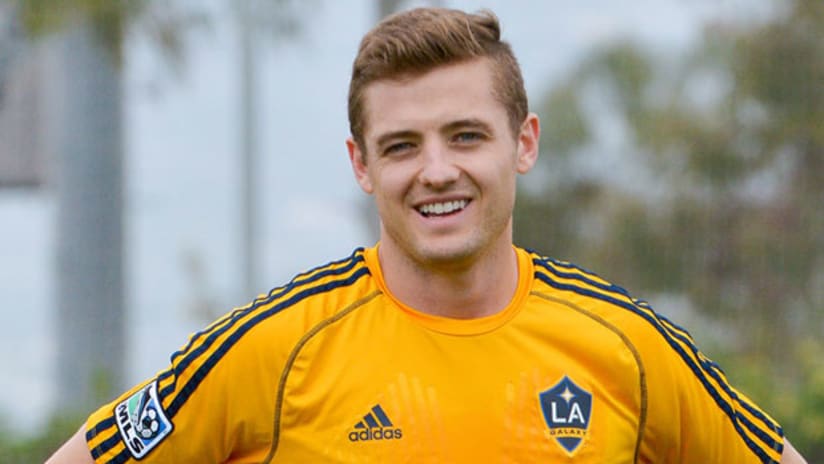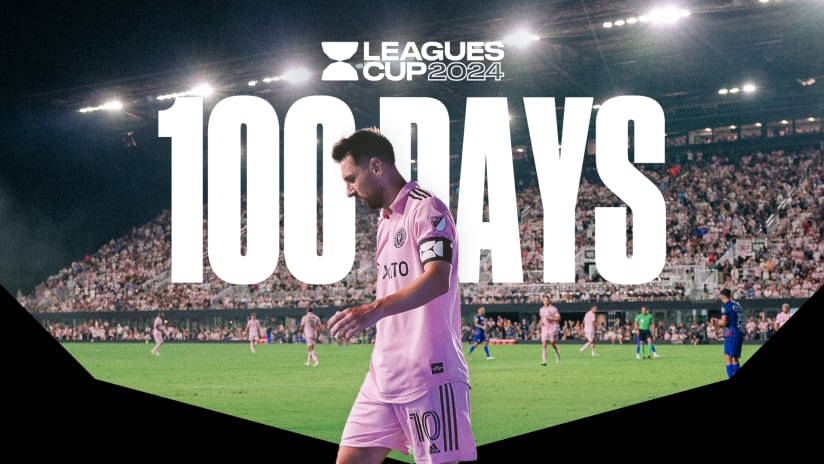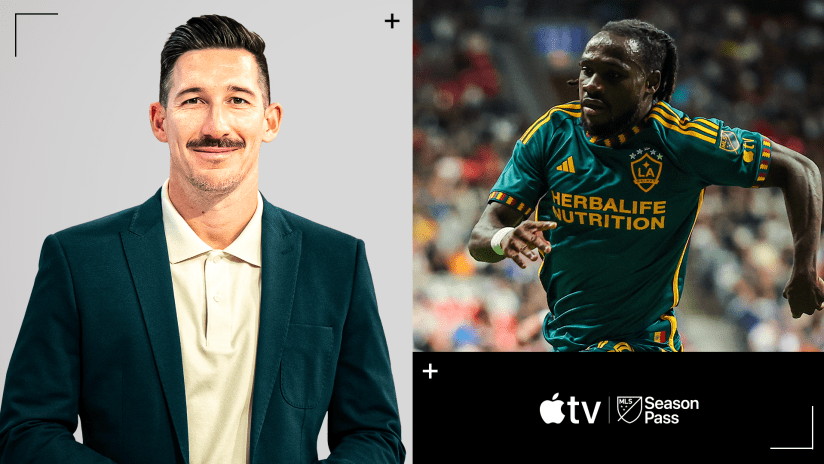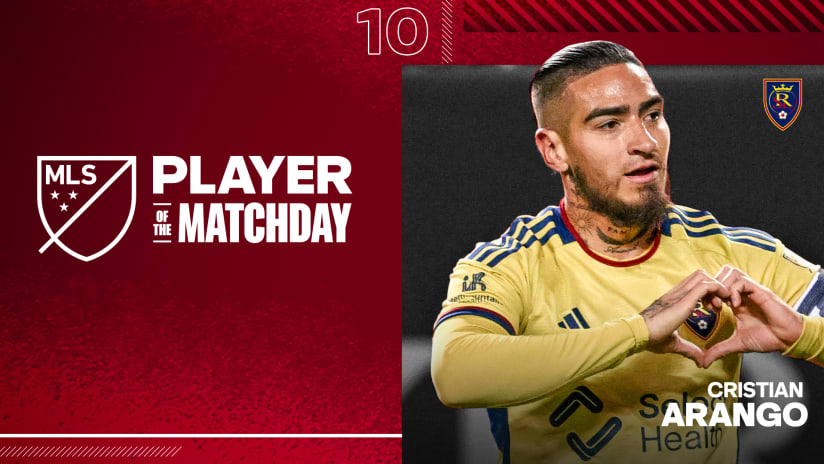CARSON, Calif. – Those reports that there’s a TV sitcom coming based on Robbie Rogers’ life? Forget about it.
"That would be," Rogers said, "probably the most boring show on television."
The Galaxy winger, Major League Soccer’s first openly gay player, is involved in a television project about a gay athlete, but it’s not his story, merely one he believes needs to be told.
Rogers was approached last fall by producers Craig Zadan and Neil Meron about helping to develop a situation comedy about an openly gay athlete, and Universal Television has optioned the rights.
"I’m just helping the writers, producers and director bring some realness to the characters, and to give some real-life experience, stuff like that," Rogers said last week, after the enterprise was announced. "I’m just a producer on the show, but such a great opportunity for me if it becomes a hit for millions of people to watch. I think teaching people through laughter and comedy is the easiest thing to do, the best way to go about it."
The show's aim is to depict LGBT characters as real people, with all the dimensions intact, something television has become much better at in recent years in shows such as Modern Family, Glee, Pretty Little Liars, The Wire, Smash (produced by Zadan and Meron), Grey’s Anatomy and others.
"In the past, it’s always been kind of playing up to the stereotypes," Rogers said, "so one of our goals and the way we’ve pitched it and what got Universal so excited is [that we’re addressing] what’s the modern-day man? Gay? Straight? I mean, what are those characteristics?
"You use terms like ‘metrosexuals,’ or [say that] guys care about the way they dress, or [point out that] there’s a lot of gay men that are huge gym rats or big sports guys. I think that the perception of gay men and straight men has really changed, and to play with those stereotypes, to draw comedy from that and not be too sensitive toward all those subjects, is a great way to approach it."
No details yet on the show’s plot, and Rogers cautions that it is very early in the process.
"From what I’ve heard – I have no experience – it’s really difficult to get a TV show green-lit," he said. "This is just the beginning."
Zadan and Meron, who sought out Rogers as the 2013 MLS season was ending, are among Hollywood’s most successful producers, working as Storyline Entertainment. The show falls under their existing deal at Universal.
The men, who are openly gay, were producers on Chicago, which won the Oscar for Best Picture in 2003, and on Hairspray, last fall’s "The Sound of Music Live!" telecast and the 2013 Academy Awards. Their projects were nominated for 18 Emmy Awards earlier this month.
Rogers, a former Columbus Crew star with experience playing for the US national team and clubs in the Netherlands and England, announced he was gay in February 2013 and joined the Galaxy three months later.
The depiction of LGBT characters on television and on film has become richer as societal acceptance of homosexuality has grown. There are instances of gay characters in cinema dating to at least the 1930s, but there was not a first gay couple on American television until Norman Lear’s "Hot L Baltimore" debuted in 1975, and the first romantic same-sex kiss did not show up until 1991, on LA Law.
- Get more LA Galaxy news at LAGalaxy.com
Too often, Rogers noted, depiction of gay men has emphasized a flamboyant, swishy stereotype, such as the characters in the film La Cage Aux Folles (or its American remake starring Robin Williams, The Birdcage) or the sitcom Will and Grace, which was an important milestone in terms of the acceptance of gay characters. At other times, gays have been characterized as immoral or violent, such as in the groundbreaking William Friedkin film Cruising, which starred Al Pacino.
In recent years, gay characters have been seen far more often, and in more realistic depictions, on television and cinema, and a burgeoning LGBT film community is producing dozens of films – many of them critically lauded, some of them mainstream hits – across the globe. The annual Outfest film festival in Los Angeles, catering to LGBT film, closed Sunday with a documentary on Star Trek regular/cultural icon George Takei.
"I think today [homosexuality in film and television is] just so much more acceptable," said Rogers, who grew up in Southern California. "Unfortunately, the way that a lot of gay men are portrayed on television is a little over the top."
Rogers says the time commitment is minor – "I just speak with the writers, maybe once a month, and I’m not going to be on set shooting anything" – but the opportunity to good to pass up. Not to mention, getting one’s foot inside Hollywood’s door could be valuable down the line.
"Yeah, who knows?" he said. "But that’s not what I was thinking when I signed up to do it. It was more an opportunity to play with stereotypes and have some fun with it."














